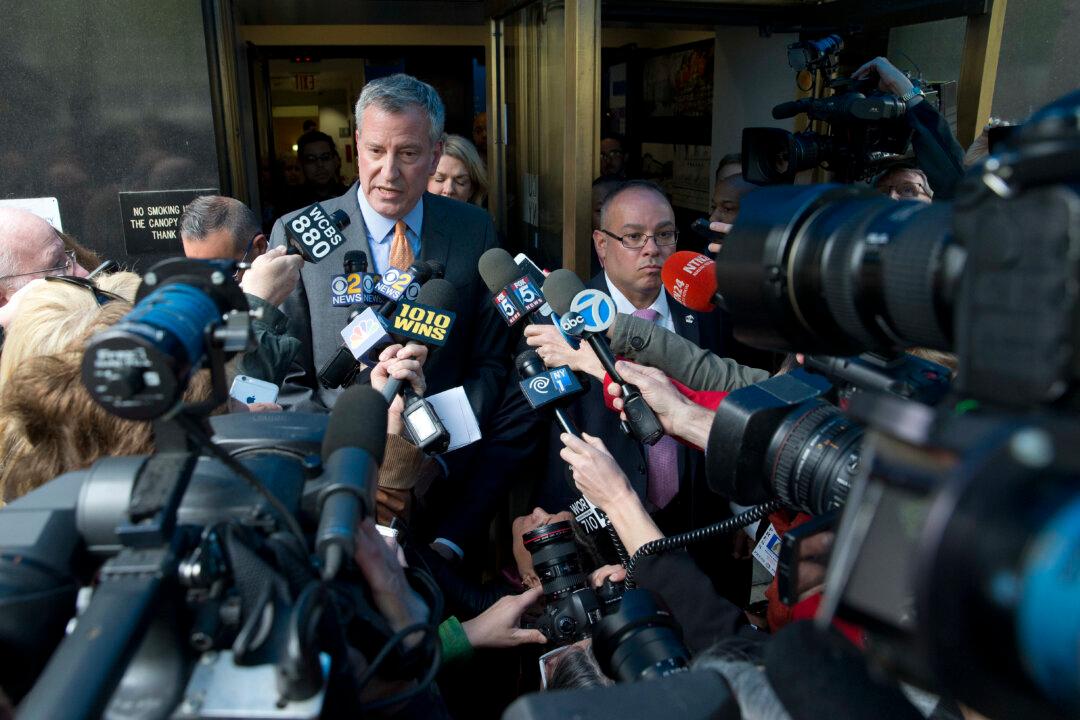NEW YORK—During his campaign to become New York City’s mayor, Bill de Blasio held himself out as a champion of the average New Yorker who would diminish the clout of big business interests at City Hall.
But in recent weeks, his administration has become mired in a flurry of conflict-of-interest investigations that are threatening to taint his administration as one that revived pay-for-play politics.
Disclosure forms filed by the mayor’s nonprofit group, the Campaign For One New York, show that it accepted numerous contributions from companies that did business with the city or wanted something from his administration.
Investigators want to know if real estate developers and other donors received preferential treatment from the city in exchange for contributions to the group, which was created to promote the mayor’s policy agenda.
One donor, Joseph Dussich, ran a janitorial supply company that was trying to sell the city mint-scented trash bags to repel rats. He gave $100,000 to the Campaign for One New York, and was subsequently awarded a city contract.
Hudson Companies, a real estate firm, gave $5,000 before the city awarded it a bid to transform a Brooklyn library into a residential skyscraper.
A Las Vegas technology company, Frias Transportation Infrastructure, gave $25,000 while pitching software to city taxi regulators designed to monitor cabbies’ whereabouts in real time.





